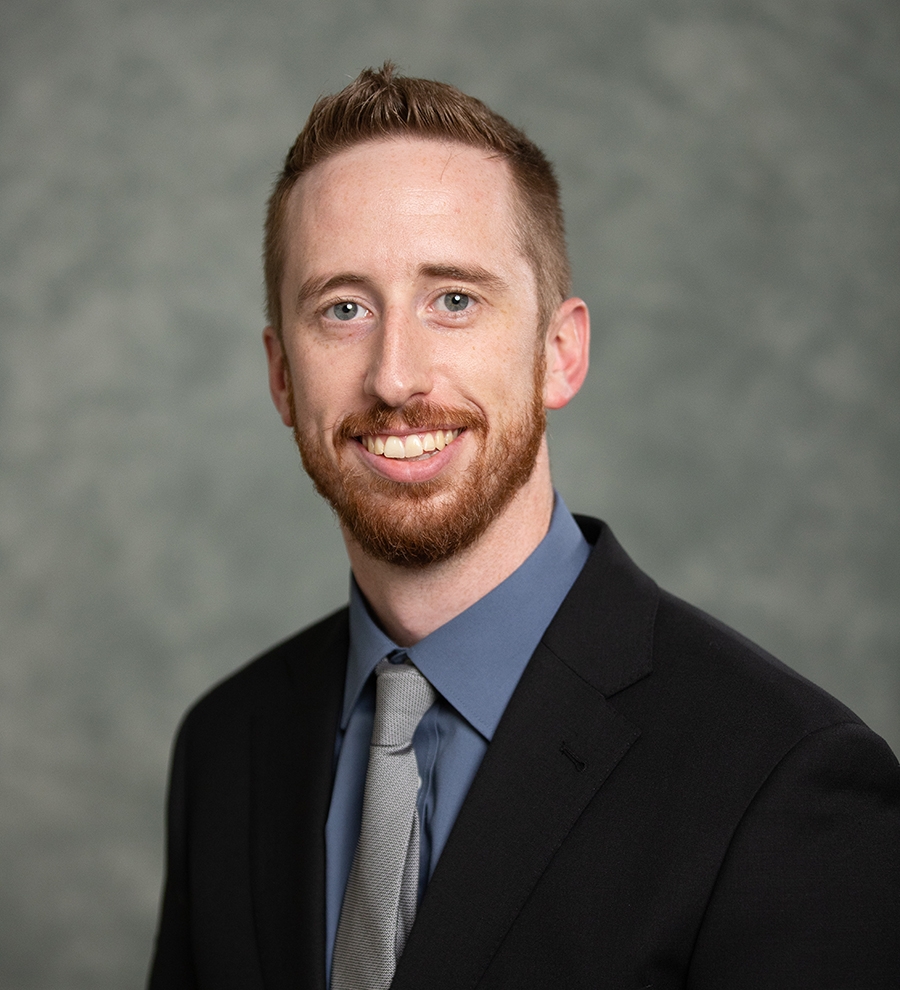Dr. Karstens Continues Research Into Rehab
Jason Karstens, PT, DPT is on a mission to improve his profession as a whole. As a Board-Certified Clinical Specialist in Neurologic Physical Therapy at A.T. Still University, he is looking forward to presenting his insights as a panelist at the upcoming Brain Health Leadership Breakfast, presented by the Brain Injury Alliance of Arizona.
“In my role, I’m trying to understand how much to push someone returning to work and their community. Often, I see people with high hopes, but we need to determine how much is realistic, how much can they handle,”
Dr. Karstens Continues Research Into Rehab
Jason Karstens, PT, DPT is on a mission to improve his profession as a whole. As a Board-Certified Clinical Specialist in Neurologic Physical Therapy at A.T. Still University, he is looking forward to presenting his insights as a panelist at the upcoming Brain Health Leadership Breakfast, presented by the Brain Injury Alliance of Arizona.
“In my role, I’m trying to understand how much to push someone returning to work and their community. Often, I see people with high hopes, but we need to determine how much is realistic, how much can they handle,”
This prestigious annual breakfast, BACK TO BUSINESS, continues to serve as a guide for C-suite leaders eager to accommodate new and returning employees with various forms of brain injury. This includes those recovering from stroke, involved in car accidents, and have experienced an overdose. Experts from the business, medical, and brain injury community will explore how all systems can work together in a more integrated fashion.
Other researchers scheduled to appear on the panel on Friday, October 20, 2023 are Dr. Benjamin Gross and Dr. Maria Centeno-Vazquez, also of A.T. Still University.
Dr. Karstens believes their multidisciplinary team approach to developing post-hospital treatment plans is essential to their success.
“In my role, I’m trying to understand how much to push someone returning to work and their community. Often, I see people with high hopes, but we need to determine how much is realistic, how much can they handle,” he says. “This is especially true when someone is transitioning from acute to sub-acute. It’s okay as long as there are no relapses.”
While developing a tailored plan, it’s important to include the patient’s family, because expectations can change recovery. “Quite often, loved ones will push the survivor harder than they’re capable of handling. It’s done with the best intentions, which is why we need to bridge that understanding.”
Conversely, the Illinois native is often surprised that individuals can do more than anticipated early on. For instance, they may have started in quiet environments but quickly want to be exposed to more. But, he warns, more often than not, recovery must be gradual.
“That’s why the neuropsychological and psychosocial input is so important to the overall team. We must be able to handle issues like depression, even if there’s dramatic recovery early on. Having professionals from related disciplines communicating well invariably leads to more generalized success. Our research continues to confirm this.
“And, of course, survivors need supports to make them feel more at ease and fill in the gaps as they move forward.”
Carrie Collins, CEO of the Brain Injury Alliance, says, “Traditionally, our Brain Health Leadership Breakfast has provided opportunities for cross-discipline enlightenment. Jason’s insights into the rehab process from a neuropsychological perspective will be eye-opening for business leaders seeking to reap the benefits of hiring those recovering from brain injury. We’re proud to offer much-needed support to enhance this process.
“The more we holistically examine ways to improve our systems, the better off all survivors of brain injury will be.”
For more information about the 2023 Brain Health Leadership Breakfast: Back to Business
ABOUT BRAIN INJURY ASSOCIATION OF ARIZONA
The Brain Injury Association of Arizona (BIAAZ) is the only statewide nonprofit organization dedicated to improving the lives of adults and children with all types of brain injuries through prevention, advocacy, awareness and education. BIAAZ also houses the Arizona Brain Health Resource Center, a collection of educational information and neuro-specific resources for brain injury survivors, caregivers, family members and professionals.
What began in 1983 as a grassroots effort has grown into a strong statewide presence, providing valuable life-long resources and community support for individuals with all types of brain trauma at no charge.






